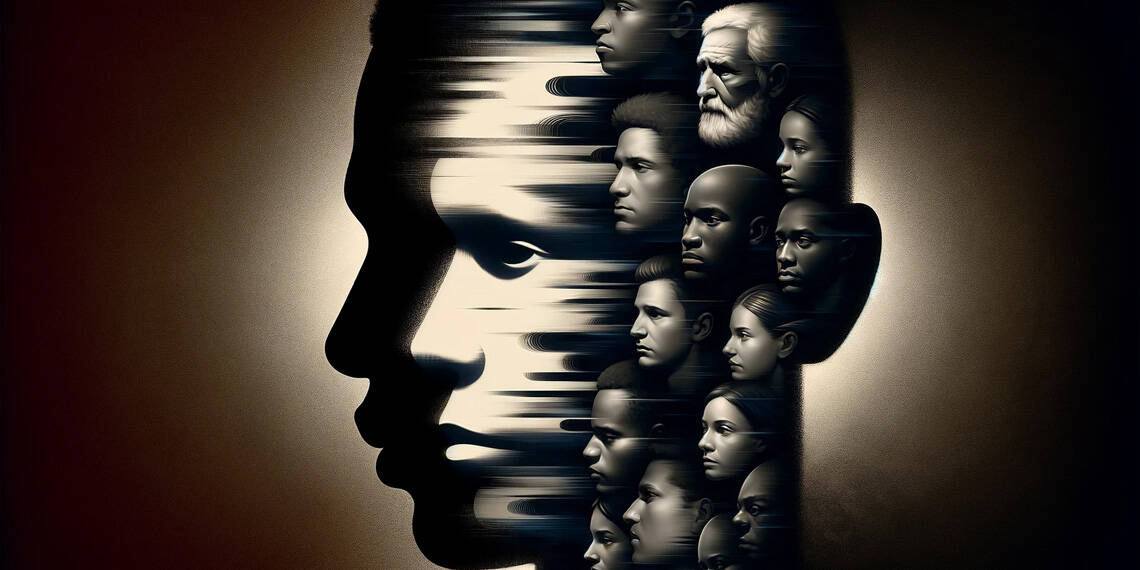Burned Verses
Superstar

Study finds anti-Black bias among White Americans is rooted in perceived threat, not dislike
New research indicates that anti-Black bias among White Americans is primarily driven by the perception of Black men as a threat, rather than negative sentiments. This finding, based on five studies, challenges traditional views on racial bias and underscores its impact, particularly in law...
www.psypost.org
APA PsycNet
Recent events have underscored the devastating consequences of anti-Black bias, particularly in encounters with law enforcement. Studies have shown that police apply force against Black individuals at disproportionately higher rates than against other racial groups. In lab studies, when tasked with decisions like whether to “shoot,” White participants tend to make quicker decisions to shoot armed targets and slower decisions not to shoot unarmed targets when those targets are Black. This bias extends even to Black participants themselves. But is this bias solely due to a stronger dislike of Black individuals than other racial groups?
“As recent events have highlighted, the consequences of anti-Black bias can be deadly,” explained study author David S. March, an assistant professor of psychology at Florida State University. “The typical approach to prejudice as valenced (i.e., bad vs. good) evaluations implies that negative evaluations of Black Americans is the problem and redressing the unfavorable attitude is the solution. But I noticed that approach does not easily track field and laboratory data.”
“I suggested that many instances of anti-Black bias, like shooter bias, may be more strongly driven by a danger rather than negative association. That is, instead of dislike, the underlying problem might be threat. So, I wanted to test if White Americans implicitly process Black individuals as a survival threat and/or in terms of negativity. Showing a unique or stronger Black-threat association would grant credence to the idea that threat and not dislike drive much anti-Black bias.”
Overall, the five studies consistently revealed that White Americans automatically associate Black men with physical threat. This association was found to be unique to Black men and did not extend to Asian men. The studies also indicated that this association with threat was stronger than the association with negative valence when these two concepts were paired in competition.
“So what we have is a clear pattern showing that White Americans automatically associate Black men with threat,” March told PsyPost. “And in no study did I find an automatic association linking Black men to negativity. So, when parsing out threat from negativity and isolating the effects of negativity, there did not appear to be an automatic Black-negative link.”
“So, the idea that prejudice is driven by dislike or disdain may be incorrect. Instead, the Black-threat association was consistent. Indeed, I even found that same effect in a follow-up series of studies where data was collected from Black participants, implying that the stereotype is so pervasive in the US culture that it is even internalized by the ingroup.”
“Given that it appears a Black-threat association is quite prevalent, prejudices driven by threat are going to have unique and powerful impacts on behavior,” March explained. “This work implies that Black Americans may disproportionately suffer from the pervasiveness of a socially reinforced Black-dangerous stereotype. Consider police use-of-force, which may be heightened in the presence of someone perceived as more dangerous than someone perceived as less dangerous.”
While these studies provide valuable insights into the automatic anti-Black bias rooted in perceived threat, there are some limitations to consider. For instance, the participants in these studies were predominantly White undergraduates, which may not fully represent the diversity of the population. Although March recently replicated these findings among Black Americans, future research in this area should explore the generalizability of these findings to more diverse populations and investigate the long-term implications of these automatic associations. Understanding the mechanisms behind racial bias is crucial for addressing and combating it effectively.
“As I detailed in the manuscript, ‘Individuals raised in the same society likely integrate some of the same associations, regardless of whether the stereotype regards their in-group,’” March said. “By distinguishing the unique presence of a widely-held Black-threat association, the underlying source of the harmful outcomes of such bias can be seen as the result of a systemic societal problem and can then begin to be addressed at that level.”